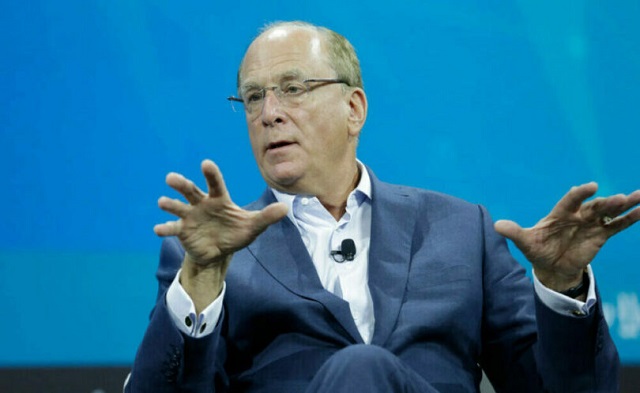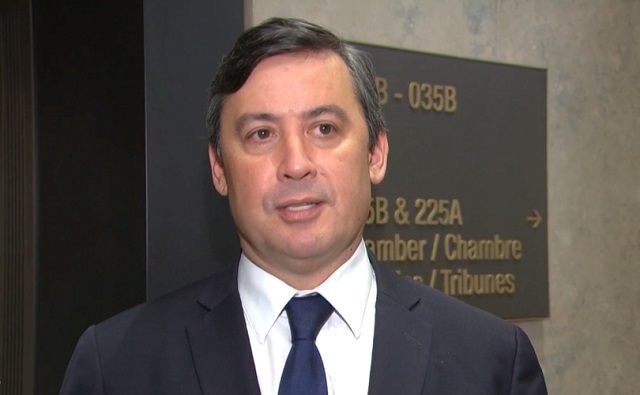Alberta
Two Alberta UCP members kicked out of caucus after challenging Kenney’s leadership
EDMONTON — Members of Premier Jason Kenney’s United Conservative Party caucus have voted to turf two of their own for challenging the leader.
Backbencher Todd Loewen was ejected Thursday night after publicly announcing earlier in the day the party is adrift and out of touch under Kenney and that the premier must quit before things spiral further.
Backbencher Drew Barnes had been the most vocal critic of the government’s COVID-19 health restrictions, saying they are of questionable effect and an intolerable infringement on personal freedoms. He was also voted out.
“Members recognize the need for government caucus to remain strong and united behind our leader, Premier Jason Kenney, as we continue to fight through what looks to be the final stages of the COVID-19 pandemic and beyond,” UCP whip Mike Ellis said in a statement.
“There is simply no room in our caucus for those who continually seek to divide our party and undermine government leadership, especially at this critical juncture.”
Kenney’s spokeswoman, Jerrica Goodwin, added in a statement: “The premier is proud to stand with his caucus colleagues and lead Alberta through the greatest health and economic crisis in a century.”
Loewen, representing the northern rural riding of Central Peace-Notley, had been the chair of the UCP caucus. Barnes represents Cypress-Medicine Hat in the south.
Loewen and Barnes join a third backbencher, Pat Rehn, who was expelled earlier this year after his constituents complained he wasn’t doing any work or listening to their concerns.
Weeks of bubbling internal discontent within the caucus boiled over into an open challenge by Loewen in a public letter to Kenney published on Loewen’s Facebook page in the pre-dawn hours Thursday.
In the letter, Loewen called on the premier to resign, saying he no longer sees a commitment to teamwork and party principles.
“We did not unite around blind loyalty to one man. And while you promoted unity, it is clear that unity is falling apart,” writes Loewen.
He accused Kenney and his government of weak dealings with Ottawa, ignoring caucus members, delivering contradictory messages, and botching critical issues such as negotiations with doctors and a controversy over coal mining in the Rocky Mountains.
“Many Albertans, including myself, no longer have confidence in your leadership,” Loewen says in the letter.
“I thank you for your service, but I am asking that you resign so that we can begin to put the province back together again.”
In a radio interview later in the day, Loewen said he wanted to stay in the UCP and that he was not seeking to split the party but save it from looming disaster in the next election.
“The people are upset. They are leaving the party,” Loewen told 630 CHED. “We need to do what it takes to stop the bleeding.
“We need to have our constituency associations strong. We’ve got to quit losing board members.”
Loewen later received a message of support from a second UCP backbencher, Dave Hanson.
Hanson wrote on Facebook: “Todd, I applaud your courage and stand behind your decision.
“I hear the same thing from our supporters in my area. I along with many of our colleagues share in your frustration.”
Hanson, Barnes and Loewen are three of 18 UCP backbench members who broke with the government in early April over restrictions aimed at reducing the spread of COVID-19. The group said the rules were needlessly restrictive and infringed on personal freedoms. Sixteen wrote an open letter expressing those concerns.
Since then Barnes has remained vocal, actively questioning why the regulations are needed in low-infection areas and demanding to see data underlying the health decisions.
Kenney tolerated the open dissension for weeks. He has said he believes in free speech and that backbenchers are not in cabinet and don’t speak for his government. But Loewen was the first to openly challenge Kenney’s leadership.
Kenney’s poll numbers, along with party fundraising contributions, have dropped precipitously during the pandemic while those of Rachel Notley’s NDP have climbed.
Notley said regardless of Kenney’s internal political troubles, Albertans need to see him focus on governing the province.
Alberta has seen in recent weeks some of the highest COVID-19 case rates in North America that threaten to swamp the province’s health system.
“It’s not looking good,” said Notley.
“What we need as a result is for the premier to clean up his house, get his house in order and provide the kind of leadership that Albertans desperately need during one of the most challenging times in our history.”
There were rumours of a widening internal UCP breach two weeks ago when Kenney suspended the legislature’s spring sitting. He said it was to keep staff and legislature members safe from COVID-19.
On Wednesday, the government extended the hiatus for another week.
Political scientist Duane Bratt said Kenney had little choice but to expel Loewen but noted it took several hours of debate among the caucus to get there.
“This is not a good day for Jason Kenney. He is wounded by this. And I don’t think it’s over,” said Bratt with Mount Royal University in Calgary.
Pollster Janet Brown said the open dissension magnifies Kenney’s leadership woes. Brown said a premier relies on three pillars of support: party fundraising, caucus support and support in the popularity polls. Any one of those three can help offset crises somewhere else.
But Kenney, said Brown, doesn’t have support in any area right now.
“If you’re down in the polls, if you don’t have the confidence of your caucus and your donors are keeping their hands in their pockets, what’s your justification for continuing?” said Brown.
“It seems like he’s failing with all three audiences.”
This report by The Canadian Press was first published May 13, 2021.
Dean Bennett, The Canadian Press
Alberta
Red Deer Doctor critical of Alberta’s COVID response to submit report to Danielle Smith this May

From LifeSiteNews
Leading the task force is Dr. Gary Davidson, who was skeptical of mandates at the time.
Alberta Premier Danielle Smith will soon be receiving a little-known report she commissioned which tasked an Alberta doctor who was critical of the previous administration’s handling of COVID to look into how accurate the province’s COVID data collection was, as well as the previous administration’s decision-making process and effectiveness.
As noted in a recent Globe and Mail report, records it obtained show that just less than one month after becoming Premier of Alberta in November of 2022, Smith tasked then-health minister Jason Copping to create the COVID data task force.
Documents show that the Alberta government under Smith gave the new task force, led by Dr. Gary Davidson – who used to work as an emergency doctor in Red Deer, Alberta – a sweeping mandate to look at whether the “right data” was obtained during COVID as well as to assess the “integrity, validity, reliability and quality of the data/information used to inform pandemic decisions” by members of Alberta Health Services (AHS).
As reported by LifeSiteNews in 2021, Davidson said during the height of COVID that the hospital capacity crisis in his province was “created,” was not a new phenomenon, and had nothing to do with COVID.
“We have a crisis, and we have a crisis because we have no staff, because our staff quit, because they’re burned out, they’re not burnt out from COVID,” Davidson said at the time.
Davidson also claimed that the previous United Conservative Party government under former Premier Jason Kenney had been manipulating COVID statistics.
In comments sent to the media, Smith said that in her view it was a good idea to have a “contrarian perspective” with Davidson looking at “everything that happened with some fresh eyes.”
“I needed somebody who was going to look at everything that happened with some fresh eyes and maybe with a little bit of a contrarian perspective because we’ve only ever been given one perspective,” she told reporters Tuesday.
“I left it to [Davidson] to assemble the panel with the guidance that I would like to have a broad range of perspectives.”
Smith took over from Kenney as leader of the UCP on October 11, 2022, after winning the leadership of the party. The UCP then won a general election in May 2023. Kenney was ousted due to low approval ratings and for reneging on promises not to lock Alberta down during COVID.
After assuming her role as premier, Smith promptly fired the province’s top doctor, Deena Hinshaw, and the entire AHS board of directors, all of whom oversaw the implementation of COVID mandates.
Under Kenney, thousands of nurses, doctors, and other healthcare and government workers lost their jobs for choosing to not get the jabs, leading Smith to say – only minutes after being sworn in – that over the past year the “unvaccinated” were the “most discriminated against” group of people in her lifetime.
As for AHS, it still is promoting the COVID shots, for babies as young as six months old, as recently reported by LifeSiteNews.
Task force made up of doctors both for and against COVID mandates
In addition to COVID skeptic Dr. Gary Davidson, the rather secretive COVID task force includes other health professionals who were critical of COVID mandates and health restrictions, including vaccine mandates.
The task force was given about $2 million to conduct its review, according to The Globe and Mail, and is completely separate from another task force headed by former Canadian MP Preston Manning, who led the Reform Party for years before it merged with another party to form the modern-day Conservative Party of Canada.
Manning’s task force, known as the Public Health Emergencies Governance Review Panel (PHEGRP), released its findings last year. It recommend that many pro-freedom policies be implemented, such as strengthening personal medical freedoms via legislation so that one does not lose their job for refusing a vaccine, as well as concluding that Albertans’ rights were indeed infringed upon.
The Smith government task force is run through the Health Quality Council of Alberta (HQCA) which is a provincial agency involved in healthcare research.
Last March, Davidson was given a project description and terms of reference and was told to have a final report delivered to Alberta’s Health Minister by December of 2023.
As of now, the task force’s final report won’t be available until May, as per Andrea Smith, press secretary to Health Minister Adriana LaGrange, who noted that the goal of the task force is to look at Alberta’s COVID response compared to other provinces.
According to the Globe and Mail report, another person working on the task force is anesthetist Blaine Achen, who was part of a group of doctors that legally challenged AHS’s now-rescinded mandatory COVID jab policy for workers.
Some doctors on the task force, whom the Globe and Mail noted held “more conventional views regarding the pandemic,” left it only after a few meetings.
In a seeming attempt to prevent another draconian crackdown on civil liberties, the UCP government under Smith has already taken concrete action.
The Smith government late last year passed a new law, Bill 6, or the Public Health Amendment Act, that holds politicians accountable in times of a health crisis by putting sole decision-making on them for health matters instead of unelected medical officers.
Alberta
Alberta’s baby name superstar steals the show again

Olivia and Noah continue to reign as top baby names in 2023.

Olivia and Noah are once again topping the lists in Alberta, highlighting the enduring appeal of the names. Olivia maintains a record setting streak as the most popular girls name in Alberta for the 11th year in a row, while Noah remains top pick for boys’ names for a fifth consecutive year.
“Congratulations to those who welcomed a new addition to their family in 2023. Bringing a child into the world is a truly momentous occasion. Whether the name you chose was in the top 10 or one of a kind, these names are only the beginning of the endless possibilities that lie ahead for each child. I look forward to supporting this generation by ensuring Alberta remains a place where they can thrive.”
In choosing names for their new arrivals, parents appear to have found inspiration in a variety of places. Some parents may have been inspired by plants like Ivy, Rose, Juniper, Poppy, Azalea or in nature like Wren, River, Meadow and Flora.
Others may have taken a literary approach with names like Bennett, Sawyer, Juliet and Atticus or been inspired by notable names from religious texts like Eve, Noah, Mohammed and Gabriel.
As always, popular culture may have had an influence through famous musicians (Aretha, Lennon, Presley, Hendrix), athletes (Beckham, Crosby, Evander), and even fairytale princesses (Tiana, Jasmine, Aurora, Ariel, Belle).
Quick facts
- A total of 47,263 births were registered in Alberta in 2023
- Notable changes to the early 2020s lists:
- Evelyn rose to seventh place on the girls’ names list after tying for 19th place in 2022.
- Emily returned to the top 10 list for girls after taking a short break in 2021 and 2022 after a 10-year stretch in the top 10 that started in 2010.
- Violet has cracked the top 10 list for the first time in at least four decades, tying with Ava and Emily in ninth place.
- The top 10 boys’ names remain the same as last year but with a slight change in order.
- Historically, girls’ names that held the No. 1 spot for the longest consecutive time period include:
- Olivia: 11 years (2013-2023)
- Jessica: six years (1990-1995)
- Emily: five years (1998-2002)
- Historically, boys’ names that held the No. 1 spot for the longest consecutive time period include:
- Ethan: nine years (2001-2009)
- Liam: seven years (2010-2016)
- Matthew: five years (1995-1999)
- Noah: five years (2019-2023)
- Parents have up to one year to register their child’s birth. As a result, the list of 2023 baby names and birth statistics may change slightly.
Boys’ names and frequency – top 10 names 2018-23
(In brackets is the number of babies with each name)
| Place | Boy Names (2023) | Boy Names
(2022) |
Boy Names (2021) | Boy Names (2020) | Boy Names (2019) | Boy Names (2018) |
| 1 | Noah (276) | Noah (229) | Noah (274) | Noah (239) | Noah (275) | Liam (225) |
| 2 | Liam (181) | Liam (176) | Jack (220) | Oliver (229) | Liam (234) | Oliver (212) |
| 3 | Oliver (178) | Theodore (173) | Oliver (208) | Liam (206) | Oliver (225) | Noah (199) |
| 4 | Theodore (173) | Oliver (172) | Liam (198) | Benjamin (182) | Ethan (213) | Ethan (188) |
| 5 | Jack (153) | Jack (159) | Theodore (191) | William (178) | Jack (198) | Logan (182)
Lucas (182) |
| 6 | Henry (146) | William (146) | William (174) | Jack (169) | William (185) | Jacob (181) |
| 7 | Lucas (140) | Benjamin (138) | Ethan (162) | Lucas (163) | Lucas (174) | William (178) |
Girls’ names and frequency – top 10 names 2018-2023
(In brackets is the number of babies with each name)
| Place | Girl Names (2023) | Girl Names
(2022) |
Girl Names (2021) | Girl Names (2020) | Girl Names (2019) | Girl Names (2018) |
| 1 | Olivia (210) | Olivia (192) | Olivia (210) | Olivia (236) | Olivia (229) | Olivia (235) |
| 2 | Amelia (145) | Sophia (152) | Charlotte (166) | Emma (184) | Charlotte (188) | Emma (230) |
| 3 | Sophia
(138) |
Emma (149) | Ava (165) | Charlotte (161) | Sophia (181) | Charlotte (175) |
| 4 | Charlotte
(135) |
Amelia (133) | Emma (164) | Ava (159) | Emma (178) | Emily (164) |
| 5 | Emma (133) | Harper (125) | Amelia (161) | Sophia (151) | Ava (161) | Ava (161) |
| 6 | Isla (120) | Charlotte (117) | Sophia (137) | Amelia (145) | Amelia (159) | Abigail (153) |
| 7 | Evelyn (114) | Ava (115) | Isla (135) | Isla (133) | Emily (150) | Harper (150) |
| 8 | Chloe (101)
Violet (101) |
Isla (101) | Abigail (120)
Chloe (120) |
Emily (127) | Abigail (141) | Sophia (146) |
| 9 | Ava (99) Emily (99) |
Lily (100) | Evelyn (119) | Lily (123) | Hannah (137) | Amelia (145) |
| 10 | Hannah (98)
Hazel (98) |
Chloe (92) | Aria (112) | Abigail (114) | Elizabeth (124) | Elizabeth (130) |
Related information
-
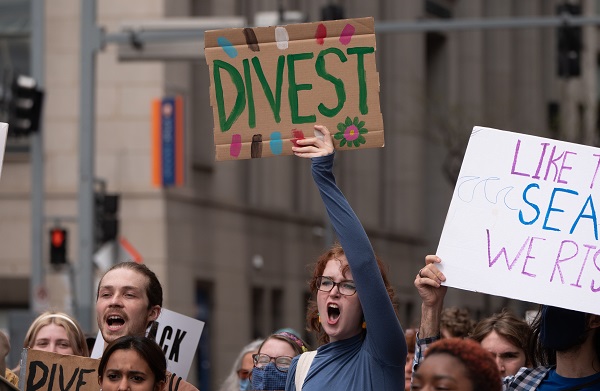
 Energy2 days ago
Energy2 days agoAnti-LNG activists have decided that they now actually care for LNG investors after years of calling to divest
-

 Energy2 days ago
Energy2 days agoReflections on Earth Day
-

 International2 days ago
International2 days agoUN attacks stay-at-home motherhood as ‘gender inequality’
-
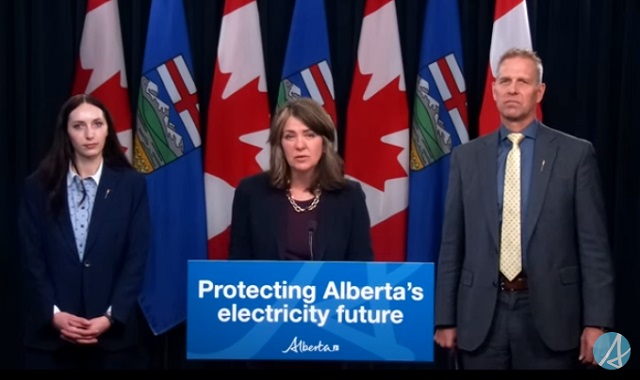
 Alberta2 days ago
Alberta2 days agoProvince to stop municipalities overcharging on utility bills
-
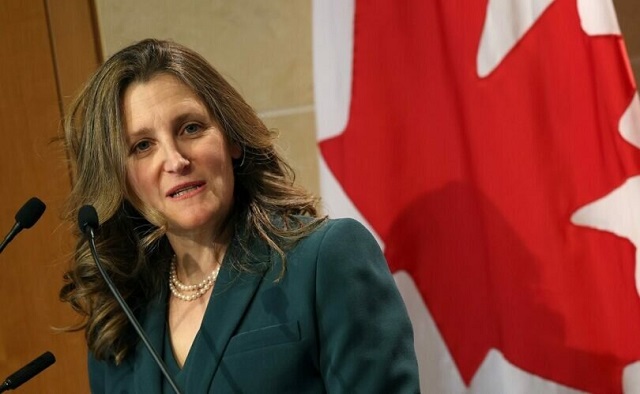
 Housing1 day ago
Housing1 day agoTrudeau’s 2024 budget could drive out investment as housing bubble continues
-
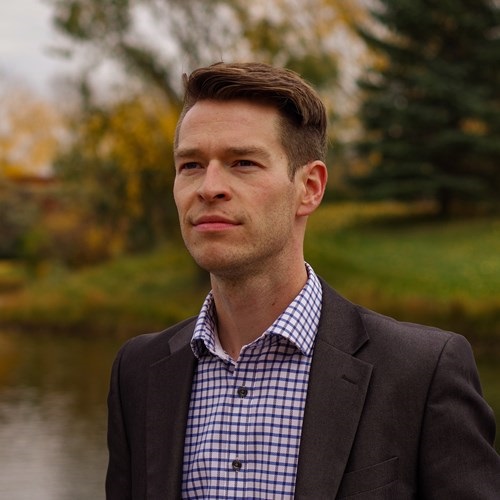
 2024 City Councilor By-Election2 days ago
2024 City Councilor By-Election2 days agoChad Krahn wins City Council by-election: Official results Friday
-

 Alberta1 day ago
Alberta1 day agoAlberta government should create flat 8% personal and business income tax rate in Alberta
-
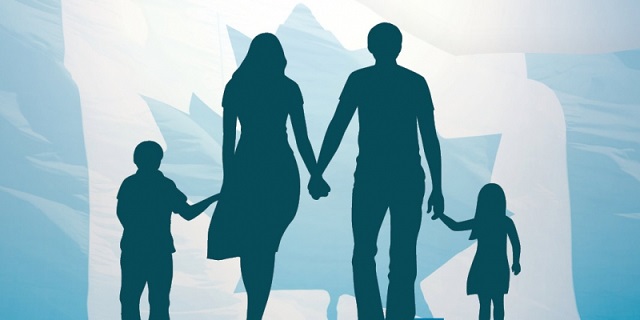
 National1 day ago
National1 day agoLow and middle income Canadians hit hardest by high marginal effective tax rates





